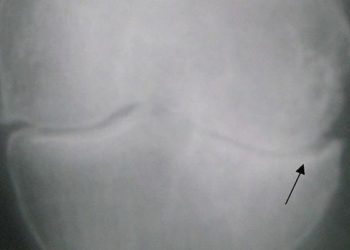Shift work impacts cognition, but likely not permanently
1. The duration of rotating shift work was negatively associated with global cognition scores.
2. Cognition impairment from rotating shift work was still evident within 5 years after switching to a non-shift work schedule but was not found in workers more than 5 years removed from shift work.
Evidence Rating Level: 1 (Excellent)
Study Rundown: The deleterious effects of ongoing shift work, including working night shifts, having a rotating around-the-clock schedule, and having a schedule that precludes regular sleep, on cognition have been well studied, but few studies have investigated the effects of chronic shift work on long-term cognition. Recent evidence on the harmful effects of long-term circadian disruption is being found in areas of metabolic dysfunction and overall health, suggesting that chronic shift work may negatively impact cognition for many years after the shift work has been completed. This study analyzed rotating shift workers and non-shift workers for over 10 years and evaluated cognition at the beginning of the study as well as after 5 and 10 years. Current and past shift workers had lower speed and memory cognition scores than those who had never done shift work. Further, global cognition scores were negatively associated with number of years doing shift work. This study also showed that current rotating shift workers and those less than 5 years removed from shift work had similar decreases in global cognition compared to those more than 5 years removed from rotating shift work and those who had never been shift workers. Patients who were more than 5 years removed from shift work had recovery of cognition scores.
This study shows that chronic, rotating shift work has significant long-term cognitive impact but also suggests that recovery from shift work is possible over a decade. Future investigations with more time points after departure from shift work will more accurately describe the long-term effects of shift work. Finally, including more types of shift work into future analyses should greatly improve our understanding of this important relationship between circadian disruption and cognition.
Click to read the study in Occupational and Environmental Medicine
Relevant Reading: Shift Work and Cognition in the Nurse’s Health Study
In-Depth [prospective cohort]: Data on the 3232 participants was randomly drawn from physician’s practices in southern France (participation rate = 76%), as part of the VISAT study, and was assessed at the beginning of the study, at 5 years into the study, and at 10 years. Two-thirds of the original cohort was seen at 5 years and one-third was seen at 10 years. An attrition analysis suggested that the drop-off in participation over the decade likely did not impact the study’s findings. Shift work was restricted to rotating shift workers that had greater than 50 days of shift work per year. Cognition was measured with 8 clinical tasks, 5 covering memory and 3 covering response speed. Both memory and speed cognition scores were lower for those who were current or past shift workers (p<0.0001 for both) without significant interactions among other covariates. Workers with >10 years exposure had significantly decreased global cognition (p<0.0001) while those with less than 10 years exposure only trended towards decreased global cognition (p=0.06). Memory scores followed this trend while speed scores were only decreased in patients with executive shift work positions. Patients with <5 years of shift work showed similar declines in memory cognition as current shift-workers compared to either non-shift workers or those >5 years removed from shift work.
More from this author: Suicide tourism in Switzerland, Decreased facial expression variability linked with serious cardiac disease, HIV infection may protect against multiple sclerosis, Social cohesion may reduce heart attack risk
Image: PD
©2012-2014 2minutemedicine.com. All rights reserved. No works may be reproduced without expressed written consent from 2minutemedicine.com. Disclaimer: We present factual information directly from peer reviewed medical journals. No post should be construed as medical advice and is not intended as such by the authors, editors, staff or by 2minutemedicine.com. PLEASE SEE A HEALTHCARE PROVIDER IN YOUR AREA IF YOU SEEK MEDICAL ADVICE OF ANY SORT.







